TACT (Together Advancing Common Trust) is a start-up non-governmental organization for bridging up cultures, fighting social and gender inequalities through sports and cultural activities.
Their mission is to build better understanding among communities and foster mutual acceptance through comprehensive approaches based on inclusive modern and universal principles.
TACT promotes sport, culture, and gender equality in order to develop positive values, facilitate youths’ overall development and empower all generations to improve their quality of life.
In the interview with Magdalena Spasovska – CEO of the organization, learn everything about TACT’s activities, mission, and achievements.
How was your organization established? What changed from the beginning to this day?
Magdalena: The association was founded in 2014 in order to improve the quality of life of young people through the development of their skills, and especially the mission of TACT is to improve the opportunities of girls and women in this country by supporting the processes of their growth and development.
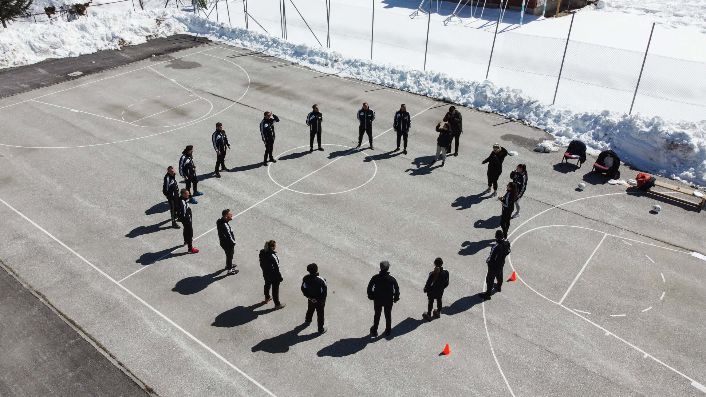
What was your motivation to work in the nonprofit sector?
The motivation to create TACT came from President Magdalena Spasovska who has many years of experience working with the CSO sector and is well aware of the power of activism to directly affect the improvement of the quality of life in the country. Furthermore, working and helping young girls, women and young people, in general, was an additional incentive and something that was rarely seen in our country.
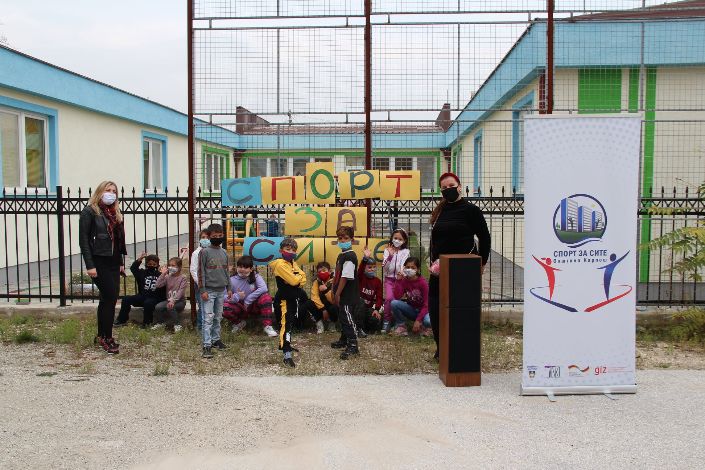
How did the COVID-19 crisis affect the organization’s work? How much has the way you operate changed? What activities were you focused on recently?
Magdalena: Covid-19 was a great challenge for everyone as well as for us. After the declaration of the pandemic by the World Health Organization, a number of activities, trainings, and events were postponed and of course, for a while, we stopped going to the office and working together with the team. The positive thing in these moments was that we quickly adapted to the new way of working, organizing virtual meetings, virtual coordination between us, and of course, we created new activities that did not depend on our physical presence. At the beginning and even today, many of the activities are implemented online or, if allowed by physical presence, it is of course in external conditions and by following all protocols. We have used this approach more for organizational development, creating annual activities, creating new projects/applications, adapting new operating systems, and of course to some ongoing activities that can be implemented despite this crisis.
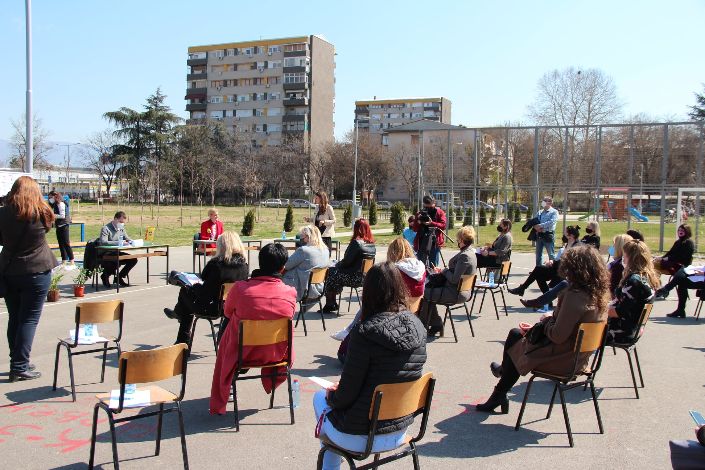
Which activities are you most focused on at this moment?
Magdalena: Recently, as an organization, we have placed more focus on project applications, applying for projects, and providing grants and financial support to the organization. We have created three new programs:
1. Skills development in young people - Sports Development program
2. Involvement of people with disabilities in a healthy and active lifestyle
3. Women – leaders in sport.
We are actively working on these programs. In addition, we are also expanding our network of collaborators during this period and creating a number of local groups of sports coaches for development in several municipalities.
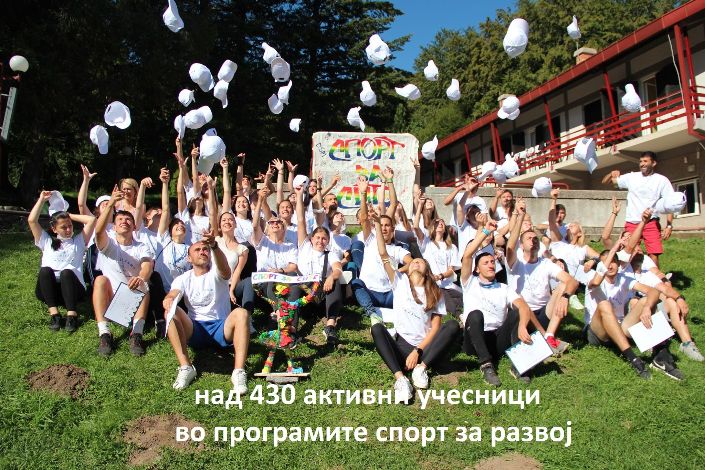
How is your organization funded? Which types of donors do you work with the most, and how? How can someone support your work?
Magdalena: Most of our finances are through grants and they are from foreign or our donors and embassies. We are currently cooperating with the Embassy of the United Nations, the Municipality of Karpos and the German Society for International Cooperation (GIZ) through projects and project applications. Anyone who wants to support our work or our programs is free to contact us or access us. What we lack is cooperation with the private sector whose support can be crucial in the development of the organization.
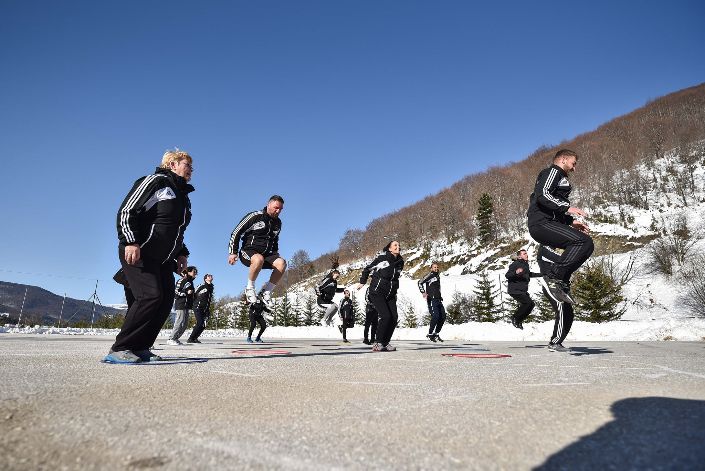
How does your organization contribute to the development of philanthropy in North Macedonia?
Magdalena: Our organization places great emphasis on grassroots initiatives. TACT is in direct contact with all young people from marginalized areas, rural areas, and women who need support in the process of development and employment. What we are directly contributing to raising awareness of the needs of young people in this country, the needs of children in homes as well as children from rural areas. Our organization on every possible occasion donates equipment and support to schools, equipment for children to better involve them in sports activities. We also have direct access to all sports associations, federations, and grassroots initiatives and emphasize the promotion of solidarity, empathy, and cooperation.
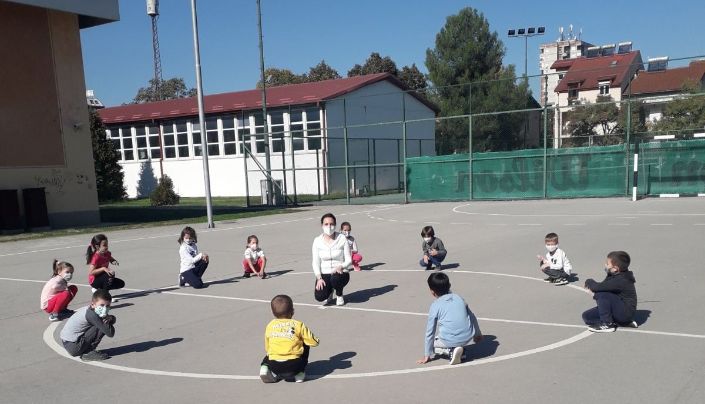
Do you cooperate with other non-profit organizations? Can you tell me more about that?
Magdalena: TACT cooperates with many civil society organizations, is involved in several platforms for example Gender Platform, Poverty Platform, etc. Our cooperation with all youth organizations is solid and we are actively involved in important boards and meetings when it comes to determining the needs of young people in the country.
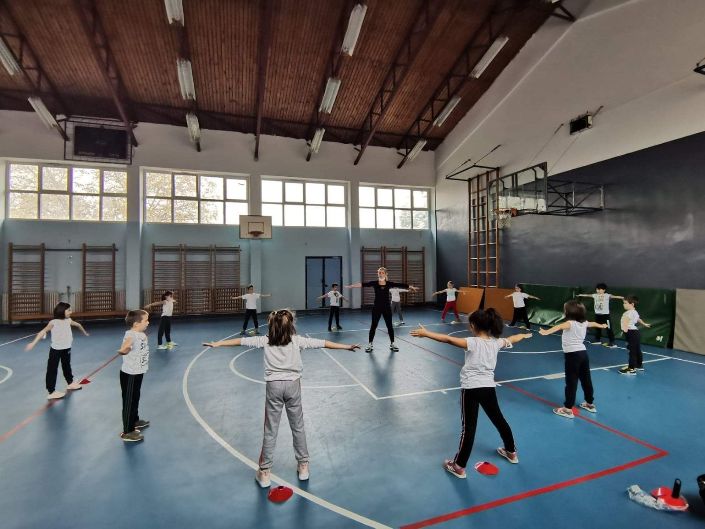
What are the biggest challenges you face?
Magdalena: As an organization, we actively work on raising awareness among people and educating them on certain important topics that contribute to major positive changes in society and the community. One of those topics is social inclusion, gender equality, and peacebuilding through sports. The challenges themselves can be said to be most often in the stereotypes and in the traditional understandings and understandings that people bring with them, and they are related to sports and our target groups of work. As great fighters for women's rights and greater involvement of women in sports, we face challenges such as sport is male-dominated. Also, when trying to create local initiatives for the inclusion of people with disabilities in a healthy and active lifestyle, we face the need to educate people about why these people are important and needed in a municipality/community. Because of all this, we try to go step by step, research and identify what are the first steps we need to take, whether they are educational campaigns, panel discussions, or just formal and informal meetings in order to achieve the great goal.
What do you consider your greatest success and what is next?
Magdalena: The definition of success is different everywhere. For us at TACT, success means many smiling faces, young people who will gain the strength and knowledge to act for their own better future. And for us as a team, it is to act united and to promote solidarity as a key-value on which modern living should be based.
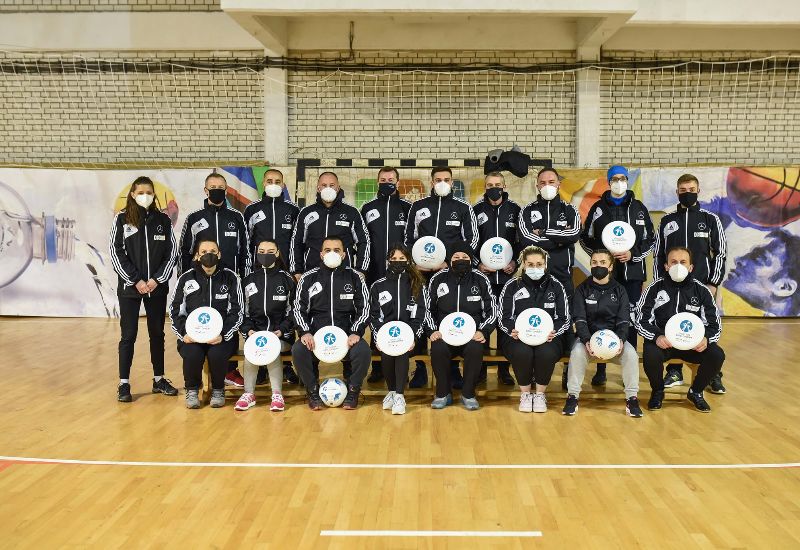

Leave a comment